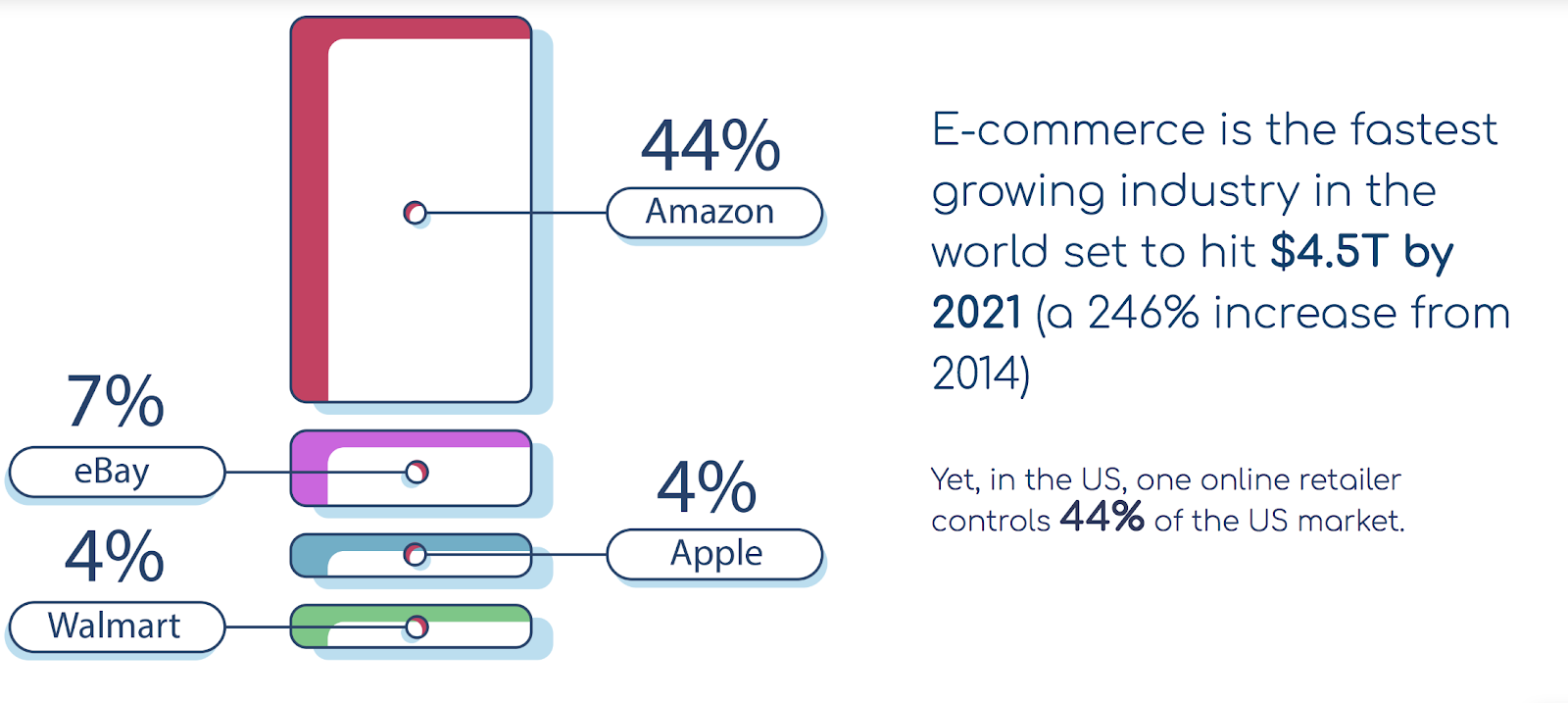For those who are wondering… just what is an Oligopoly, and why should we care?
An “Oligopoly” is a market structure in which a small number of firms/companies dominate the market which can lead to reduced competition and ultimately higher prices for consumers.

Oligopolies through history have ranged from steel manufacturers to wireless carriers, oil companies to e-commerce. In general, an oligopoly is not good for a free market economy because it tends to block new competition, slows innovation, and increase prices. Firms in an oligopoly often set prices, either collectively — such as by a cartel like OPEC — or under the leadership of a single member. This way, profit margins are artificially kept higher than they would be in a truly competitive free market.
Governments worldwide have attempted to lessen the proliferation of oligopolies along with monopolies, by enforcing laws against price fixing and collusion to varying and mostly unimpressive degrees of effectiveness. A cartel such as OPEC, for instance, can freely fix prices since they operate beyond the reach of governments. Today’s online reach of e-commerce as well as social media is inherently borderless, making such attempts even more futile.
The Conditions Enabling Oligopolies
How do these giant firms even get to dominate the market in the first place? Historically speaking, high entry costs and legal privilege (for instance licenses which are granted to a limited number of recipients in a given jurisdiction) played a part. Today’s fastest growing platforms that gain power and leverage over the market as they gain value commensurate with more users. Social media platforms like Facebook and e-commerce platforms like Amazon that incorporate social media features such as reviews and comments, are examples of members of this new kind of oligopoly.
Terry Gross, the host of NPR’s “Fresh Air” radio interview show noted, during her talk with New York Times tech columnist Farhad Manjoo:
“…the ‘frightful five’ — Amazon, Google, Apple, Microsoft and Facebook — are collectively more powerful than many governments.”
Add to this list of giants, Alibaba, the world’s most popular destination for online shopping. Its online sales totaled $248 billion in 2013, more than eBay and Amazon.com combined. And its novel “Singles Day” sales event (begun as a tongue-in-cheek protest against Valentine’s Day, by college students in the 1990s) broke all records for sales in a single day in 2017. This kind of power in e-commerce is impossible to ignore.

Playing by the Oligopolies’ Conditions
What all of these behemoths have in common is their insatiable hunger and capacity for the personal data of consumers. Every time a sale is made, a customer’s data is collected, aggregated and used toward facilitating more sales. The problem with this kind of endless appetite, is an inherent lack of transparency and privacy that come with a centralized organization actively mining data from its users. The oligopoly of e-commerce — Amazon, eBay and Alibaba — are calling all the shots with consumers’ data.
This problem has become increasingly dangerous, as issues of fraud, identity theft, and other privacy issues have finally come to the attention of lawmakers in the European Union, resulting in the General Data Protection Regulation or GDPR as it’s known. This regulation came into effect across the EU on May 25, 2018 and sets principles for data management and the rights of the individual, while imposing fines that can be revenue-based. The General Data Protection Regulation covers all companies that deal with data of EU citizens, so it’s critical for corporate compliance officers. And it’s giving them all a major headache as they scramble to avoid the fines associated with non-compliance. Such are the problems of a centralized system. These are the issues of middlemen.

Blockchain Breaks the Chains of Oligopoly
Spl.yt takes the power from the big data gobbling giants of e-commerce and gives it back to buyers and sellers, who can freely engage in a true peer-to-peer experience, securely and simply via blockchain technology and smart contracts. Through this decentralized, more efficient system, the middleman is eliminated. Time and money are saved by automating key intermediary functions via smart contracts. Spl.yt token economics incentivizes its users to transact fairly for a more secure e-commerce experience. Data is not mined by any central authority. Private data is protected, not harvested and used.
The Giants of e-commerce will not be taken down by a bigger giant, but by a global community of individuals all freely connecting with each other through a decentralized e-commerce ecosystem By decentralizing e-commerce, these giants will simply no longer be needed. Smart contracts will automatically facilitate payment to service providers along the e-commerce retail chain (affiliate marketers, dropshippers, etc.). And e-commerce giants will go the way of the dinosaur. To learn more about Spl.yt and the decentralized future of e-commerce, visit https://www.spl.yt/learn-more.
Source: spl.yt


Leave a Reply